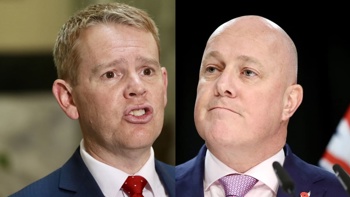

A doctor admits he treated and prescribed high quantities of painkillers, sedatives and tranquillisers to another doctor he was close to.
It was now “painfully obvious” he should have stopped after he was told about his patient’s substance use disorder, he told the Health Practitioners Disciplinary Tribunal on Monday.
The accused doctor, known as Dr “I” in tribunal documents, had a collegial relationship with the patient, Dr “A”, when they worked together at the same clinic.
Both their identities are protected for the two-day hearing.
According to an agreed summary of facts, Dr I was the general practitioner and medical director at an Auckland clinic where Dr A worked part-time from 2018 to 2019.
In mid-2019, the tribunal found Dr A guilty of professional misconduct for prescribing drugs for herself using her family members’ names.
She was found to have a substance use disorder as well as disordered personality traits that affected her ability to practise medicine.
She was censured, fined, and restricted from returning to practice unless she met specific conditions, including hair and blood testing and having onsite supervision by a vocationally registered GP.
In August 2018, she became a casual patient at Dr I’s clinic while she was still working there - despite having her own GP.
Records showed Dr I saw her for consultations 28 times until 2020, dispensing 127 medications to her including codeine, tramadol, zopiclone, lorazepam, and clonazepam.
Codeine and tramadol were potentially addictive drugs, while lorazepam and clonazepam were Class C controlled drugs.
Dr I accepted he issued 61 of the prescription items, but claimed the rest were falsified by Dr A who allegedly manipulated security flaws in the clinic’s computer system.
At the same time, Dr A’s own GP was also prescribing zopiclone and lorazepam for her.
“[Dr I] entrusted [Dr A] with the role of coordinating her care between himself and [her GP], but he did not put in place any systems to coordinate her care over and above that,” said Robert Stewart, counsel for the Professional Conduct Committee [PCC], which brought the charges against Dr I.
“If [Dr I] had kept an accurate record of the actual amounts of opioids, benzodiazepines, and sedatives prescribed he would have had early warning of medication overuse,” Stewart said.
“Instead, he treated acute migraine and acute anxiety well outside New Zealand guidelines thus enabling drug misuse and dependence,” he said.
Dr I’s clinical notes also did not sufficiently explain the “high quantities of medications with the potential for misuse”.
The PCC charged him with treating and prescribing inappropriate amounts of drugs to someone he was close to, doing so without properly assessing her medical history or taking proper notes, and even after being notified of her substance use disorder.
Dr I accepted he was at fault and accepted the charges on Monday - his treatment of Dr A was inappropriate because it “blurred boundaries” and potentially affected his clinical objectivity, he told the tribunal in writing.
Doctors are bound by a professional code not to treat themselves or people who are close to them except in exceptional circumstances.
A Medical Council statement also specified that doctors must not prescribe controlled drugs or drugs that pose a risk of addiction or misuse to people close to them.
The hearing continues this afternoon.

Take your Radio, Podcasts and Music with you









